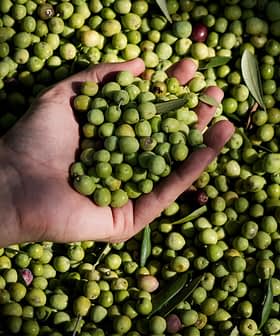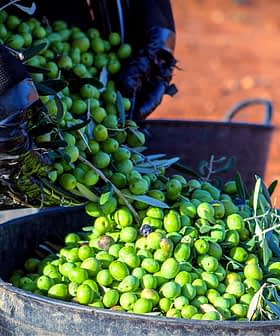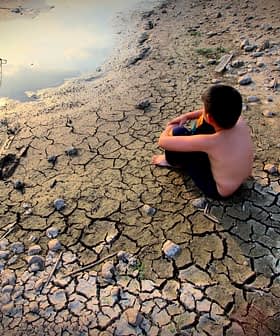Lower Output in Greece Blamed on Climate
Affected by extended heat and fly attacks, Greece's annual olive oil output is forecast to drop by 17 percent, and Italy's more than double that. Still, Greece remains a surplus country with a loyal client base and strong export potential.
The Greek olive season started with olive oil prices at satisfactory levels but a decline in production is expected to lead to lower consumption, with initial estimates predicting a drop to 200,000 tons. Italy, Greece’s competitor, is facing an even larger decline in production due to olive fruit fly infestations, contributing to an overall decrease in olive oil supply in Europe by 17 percent.
The official start of the Greek olive season found the price of olive oil at satisfactory levels, but the production output in decline leading to lower consumption.
The initial olive oil forecasts predicted that Greece, with an annual output exceeding 300,000 tons over the past two years, would experience a relatively reduced production this year. The first estimates were talking about an output ranging from 240,000 to 250,000 tons.
The diminished output will create pressures in both the quality and quantity.
Experts are now predicting that the annual olive oil output will drop even further. “We are expecting an annual output of roughly 200,000 tons and a decrease of 20 to 25 percent in average consumption,” said Giorgos Oikonomou, general director of the Greek Association of Industries and Processors of Olive Oil (Sevitel), and executive board member of the scientific, non-profit organization Filaios.
See Also:Complete Coverage of the 2016 Olive Harvest
“This is the direct result of various reasons, the most important being the climate conditions, that is the extended heat and increased temperatures of the previous months, and the olive fruit fly infestations during florescence, particularly during Easter period,” Oikonomou told Olive Oil Times
“On the other hand, neighboring olive oil giant and competitor Italy has suffered an even worse fly attack,” said Oikonomou. Indeed, international agencies forecast a plunge of 49 percent for Italian annual olive oil production as opposed to a 17 percent decline in the Greek one.
Generally speaking, downward trends in olive oil production are not restricted to Italy, or the Mediterranean basin altogether (for example, Portuguese annual production is also expected to fall by 4 percent).
Europe’s olive oil supply, which accounts for 78 percent of the global olive oil supply, will shrink by 17 percent this year, and the whole world will see a decline of 14 percent in the Liquid Gold annual production, at least in comparison with the amounts it enjoyed last year.

Giorgos Oikonomou
“In Greece, this diminished output will create pressures in both the quality and quantity of olive oil,” said Oikonomou. “Still, Greece classifies as a surplus country, so the problems are not insurmountable.”
“Greece is distinguished by her loyal client base, her loyal traders, as I prefer to call them, but the market is expanding. To put you in the picture better, first only the Greek homogeny, for example the Greeks of Astoria, would buy exported Greek olive oil. Now, you can find our exports in large supermarket chains unrelated to the Greek diaspora.”
Sevitel’s director stressed that the Greek olive oil market is leaping ahead steadily, and talked about the association’s plans to solidify standardization of Greek olive oil. Finally, he mentioned that the sector will take off if the state looks into the international olive oil campaign aspect more enthusiastically among others, but also if Greek producers coordinate their actions, following the footsteps of countries like Spain.









